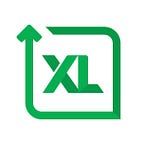DevOps at Air France-KLM
The need to continuously launch new software is at the core of the transportation industry today. Air France-KLM recognized this need early as they began to scale their release processes and provide faster more reliable customer services. Passengers buying tickets, choosing their seats online, and pilots using web applications to access weather forecasts are just a few reasons why Air France-KLM began looking for a Continuous Delivery solution to automate their software deployments.
As the largest European airline group, Air France-KLM was deploying around 200 Java EE application deployments per week, with a 70% rate of error or failure. The IT department needed a release model that would increase deployment frequencies and eliminate deployment errors by providing automation and visibility into the deployment process.
“When I joined KLM, we were facing problems and errors in over 70% of all software deployments. The development and deployment teams used an in-house automated software deployment environment that had limited functionality. Managing this environment still required a lot of manpower, which was not only inefficient but also prone to errors. We clearly needed a more powerful system to help us reduce repetitive work, boost productivity and improve quality,” said Ronald Bosch, who is responsible for the project team in the Web Systems department.
The Solution
After analyzing the release automation tool space, Air France-KLM decided an Application Release Automation solution would provide the best results. The airline decided that XL Deploy would meet its requirements for faster more reliable software deployments due to its ability to automate and accelerate Java and .NET deployments in cloud and middleware environments such as IBM WebSphere, Oracle WebLogic and JBoss.
Using XL Deploy, developers and system administrators can prepare their code for deployment with only a few mouse clicks.
“Normally, deploying an application in the target environment is a highly administrative activity. Although scripts can be used to help simplify the work, the process remains sensitive to errors, needs constant updating and requires very specific expertise,” said Bosch. “With XL Deploy we were able to automate the deployment process end to end. It has made us less reliant on specialists because deployments can be performed easily by developers and system administrators.”
The Results
Air France-KLM saw clear benefits from a “self-service” model, with the ability for developers to support around 200 Java deployments a week. Being able to deploy the EAR files for a project, as well as configure other middleware systems such as web servers, security proxies and XML firewalls in an integrated manner, was a huge advantage.
Another benefit was a shorter turnaround time. By eliminating the waiting time caused by errors during deployment, KLM has been able to reduce the turnaround time for major projects by several weeks. An analysis by KLM showed direct savings of 25 hours for smaller projects and up to 150 hours for larger projects. The payback period for the investment in XL Deploy was less than a year. The net result was an annual savings of $1 million and a 20% increase in application time to market, according to Bosch.
Bosch concludes: “Deployments can be repeated more readily in other environments. Deployers do not have to spend as much time on administrative tasks and can focus more on the interesting aspects of their job. On top of that, we are now able to make better use of our expensive acceptance test systems. With XL Deploy, we focus more on developing advanced online functions for our internal and external customers.”
Read the Full Case Study, and continue learning about DevOps and Continuous Delivery with XebiaLabs.
